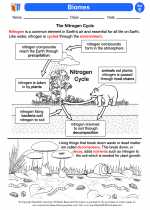Hormones
Hormones are chemical messengers produced by the endocrine glands in the body. They are essential for regulating various bodily functions, including growth, metabolism, and reproduction.
Types of Hormones
There are several types of hormones, including:
- Steroid Hormones: These are derived from cholesterol and include hormones such as estrogen, progesterone, and testosterone.
- Peptide Hormones: These are made up of amino acids and include hormones such as insulin and growth hormone.
- Amino Acid-Derived Hormones: These are derived from amino acids and include hormones such as epinephrine and thyroid hormones.
Functions of Hormones
Hormones play a crucial role in the body, including:
- Regulating metabolism
- Controlling growth and development
- Regulating reproductive processes
- Managing stress responses
- Controlling fluid and electrolyte balance
Regulation of Hormones
Hormone levels in the body are tightly regulated through a feedback system involving the endocrine glands and target organs. This ensures that the body maintains a state of balance known as homeostasis.
Study Guide for Hormones
When studying hormones, it is important to focus on the following key points:
- Understand the different types of hormones and their chemical composition.
- Learn about the function of specific hormones and their target organs.
- Explore the feedback mechanisms that regulate hormone levels in the body.
- Examine the role of hormones in various physiological processes, such as growth, metabolism, and reproduction.
- Consider the impact of hormone imbalances on health and well-being.
◂Science Worksheets and Study Guides Fifth Grade. Plant Responses and Adaptations
Study Guide Plant Responses and Adaptations
Plant Responses and Adaptations  Activity Lesson
Activity Lesson Biomes
Biomes  Worksheet/Answer key
Worksheet/Answer key Plant Responses and Adaptations
Plant Responses and Adaptations  Worksheet/Answer key
Worksheet/Answer key Plant Responses and Adaptations
Plant Responses and Adaptations  Worksheet/Answer key
Worksheet/Answer key Plant Responses and Adaptations
Plant Responses and Adaptations  Vocabulary/Answer key
Vocabulary/Answer key Plant Responses and Adaptations
Plant Responses and Adaptations  Vocabulary/Answer key
Vocabulary/Answer key Plant Responses and Adaptations
Plant Responses and Adaptations 

 Activity Lesson
Activity Lesson
 Worksheet/Answer key
Worksheet/Answer key
 Worksheet/Answer key
Worksheet/Answer key
 Worksheet/Answer key
Worksheet/Answer key
 Vocabulary/Answer key
Vocabulary/Answer key
 Vocabulary/Answer key
Vocabulary/Answer key

The resources above cover the following skills:
Life Science
Interdependence - A. Plants and animals, including humans, interact with and depend upon each other and their environment to satisfy their basic needs. B. Both human activities and natural events can have major impacts on the environment. C. Energy flows from the sun through producers to consumers.
Compare and contrast adaptations displayed by animals and plants that enable them to survive in different environments such as life cycles variations, animal behaviors and physical characteristics.